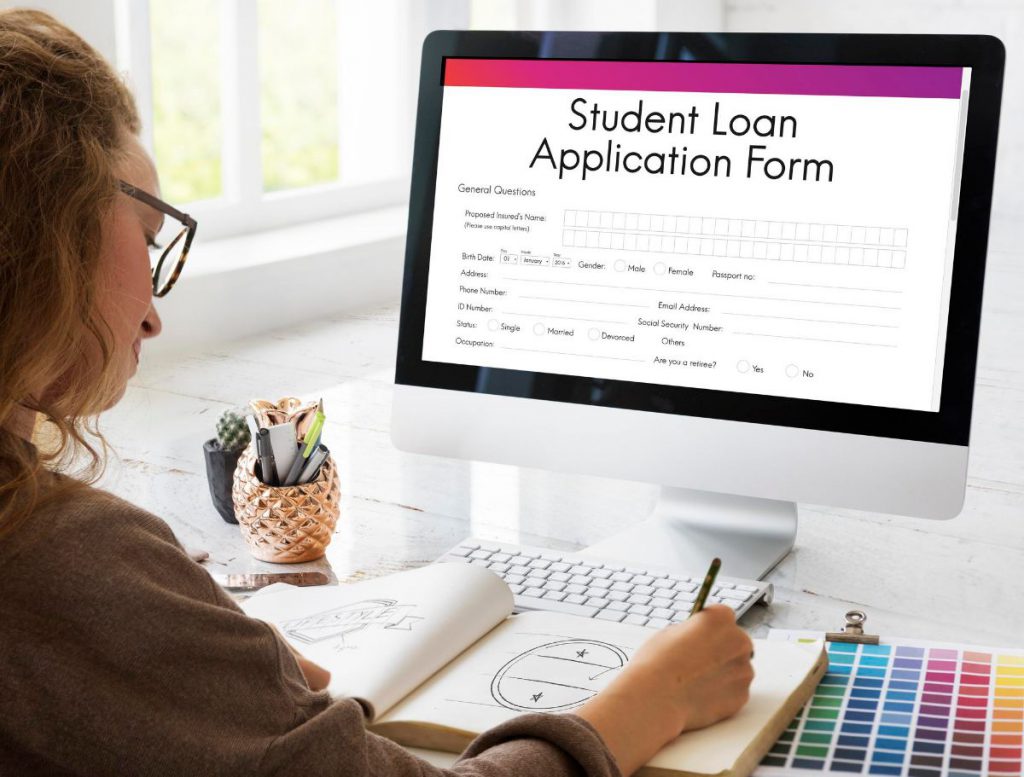Education holds the power to pave the path to better employment opportunities and an enhanced lifestyle. So, pursuing higher education is essential to get the knowledge, skills, and values that will help you advance. The good news is that financial options are available to students as they can take the help of student loans in the UAE.
Are you looking to pursue higher education in the UAE but worried about financing your studies? Applying for a student loan in UAE can be a smart solution.
Here’s a step-by-step guide on how to apply for student loans in the UAE.
Read on to discover the prerequisites, criteria, and application procedures for securing student loans in the UAE.
What will be the Eligibility Criteria for Obtaining a Student Loan in the UAE?
The application process for study loans for international students in the UAE comes with specific conditions. To be eligible, you must meet the following criteria:
- You must either be a UAE national or a resident of the country.
- Your age should fall between 21 and 65 years.
- You must earn at least the minimum amount required by the bank, which might range from AED 7,000 to AED 10,000 per month. It is important to verify with your particular bank.
- You must possess a current account with a bank offering education loans.
Select a bank or financial institution that best meets your needs and interests based on your research and eligibility. Consider factors including interest rates, loan amounts, and terms of payback.
What are the Features of Student Loans in the UAE?
When applying for an education loan, you should take note of the following features:
- The loan amount varies across banks, with some offering a minimum loan as low as AED 10,000. The actual amount available depends on your (or your parents’) eligibility.
- The repayment tenure for a sanctioned loan extends up to 48 months.
- Interest rates vary based on your income and the policies of the bank. You can often choose between flat and reduced interest rates.
- Early settlement and processing fees are subject to the specific policies of each bank, so it’s essential to check with your bank during the loan application process.
- The quality of education in the UAE is consistently ranked among the best in the region, attracting students from around the world.
Who Provides Student Loans in the UAE?
The Banks in The UAE
Several banks in the UAE extend student loans. Here is a list of popular banks in Dubai and other emirates where personal loans can be obtained:
- Abu Dhabi Commercial Bank (ADCB)
- Mashreq Bank
- HSBC
- Emirates NBD
- RAK Bank
- Barclays
- Abu Dhabi Islamic Bank (ADIB)
- Union National Bank (UNB)
- Dubai Islamic Bank
- National Bank of Abu Dhabi
- Sharjah Islamic Bank
Higher Education Institutions in the UAE
Apart from banks, Middlesex University in the UAE offers education loans with benefits like zero processing fees, swift approvals, waiver of mandatory life insurance fees, and an interest rate of 6.99%. You can contact the university for further information regarding loan applications.
Other universities in the UAE that offer financial help and scholarships to their students include:
- Abu Dhabi University (ADU)
- American University in the Emirates (AUE),
- United Arab Emirates University (UAEU).
How to Apply for a Student Loan in the UAE?

With a few extra procedures and restrictions, the application process for a student loan in the UAE is very similar to that for a personal loan. Whether you are applying through a bank or a university, the application process varies.
To secure a loan from a bank, you need to submit the following documents:
- Original and copy of a valid passport (for ex-pats).
- Valid residence visa.
- Bank account statements for the past three to six months.
- Copy of your University ID card or enrollment card issued by the university.
- Quotation addressed to the bank from the university or school.
- Original salary certificate.
- Original bank statement of your salary for the last six months.
- Trade license (for self-employed individuals).
- A security cheque for 120% of the loan amount, if required by the bank.
The student loan application process varies for each university, so it is advisable to visit your preferred university’s website for detailed information on their loan requirements.
According to the bank or financial institution, the process for applying for a student loan in the UAE may differ differently. It is, therefore, important to adhere to their particular application guidelines and requirements. If you have any queries or require assistance during the procedure, always get in touch with the bank’s personnel. You can pursue your educational objectives in the UAE with the aid of a student loan with cautious planning and sound money management. There are a lot of affordable schools in Dubai where students from other nationalities can study.
After completing your education, you typically have a grace period before repaying the loan. Familiarize yourself with the repayment schedule and ensure timely payments.
Wrap Up
That concludes our guide on obtaining a student loan in the UAE. We hope this information aids you in smoothly pursuing your educational aspirations. In line with the country’s policy changes, students can now sponsor their families in the UAE, providing them with further empowerment for both academic and personal growth. Dubai Marina and Downtown Dubai are among the top areas for students living in Dubai, offering a vibrant urban lifestyle and proximity to many educational institutions.
While education loans are one financing option in the UAE, various types of home loans are available in Dubai to help you achieve your dream of owning a home in the city. Exploring mortgage options in Dubai is worthwhile as it offers the benefit of leverage.
Frequently Asked Questions
According to the Central Bank of the UAE’s guidelines, a personal loan amount should not exceed 20 times the value of your salary or total income.
In such cases, the bank is entitled to deduct only 30% of your pension salary or income if your loan repayment period exceeds your retirement age.
Yes, expatriates can apply for student loans in the UAE. However, eligibility criteria may vary. For instance, the maximum age for completing the finance tenor is 60 years for expats applying for an education loan at ADIB. For Emiratis, the financial contract for a loan expires after 65 years.
While banks like ADIB offer study loans for international students in the UAE, some top universities in Dubai also offer educational loans or scholarships.
Typically, the repayment period for student loans extends to 48 months, but confirming the specific terms with your bank is essential.










